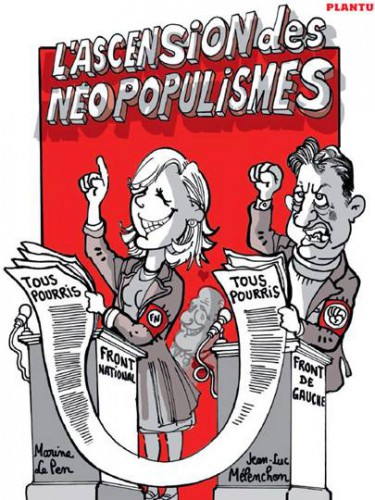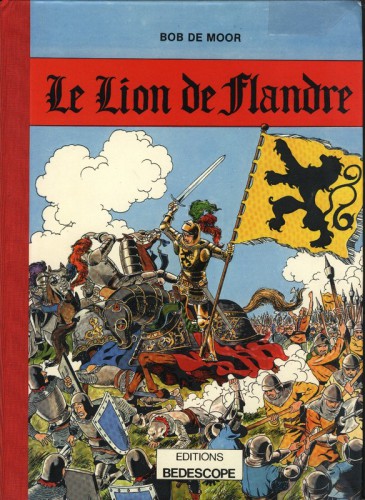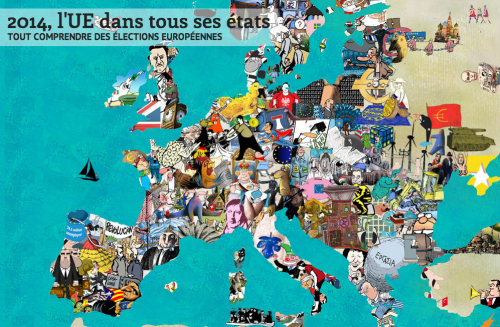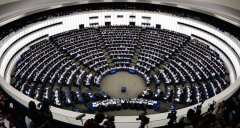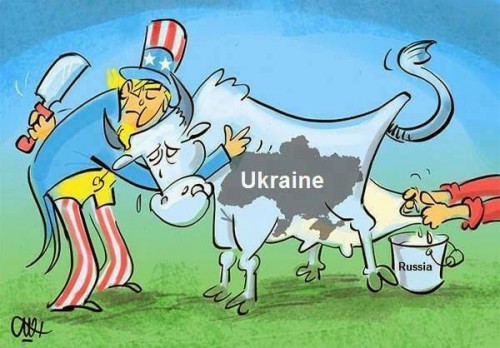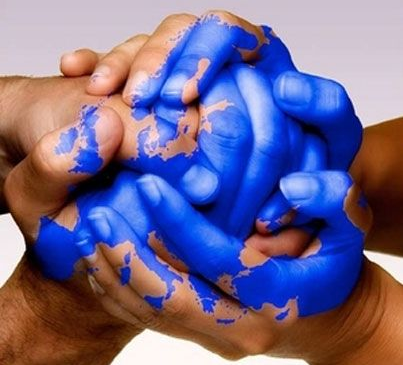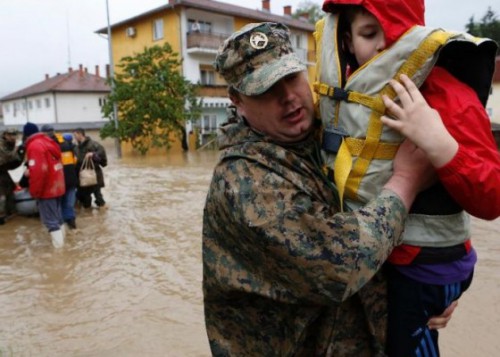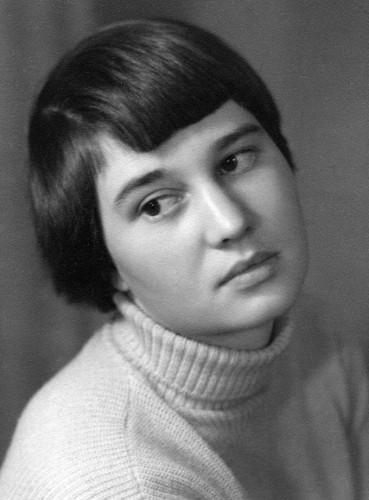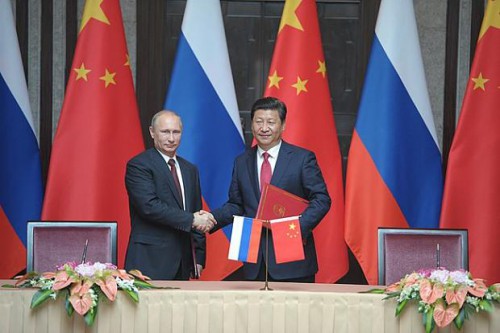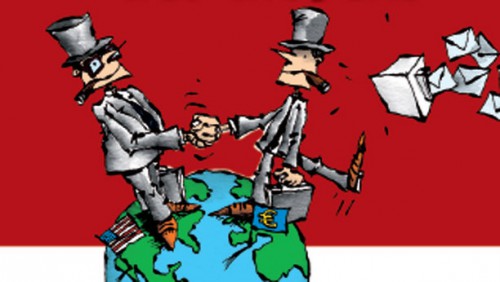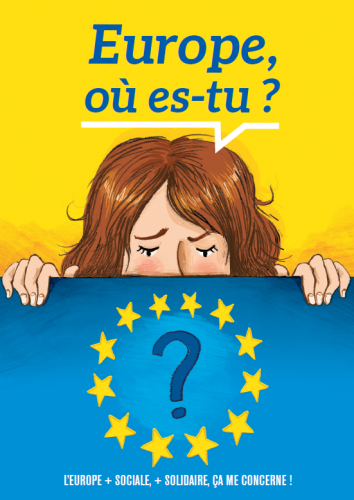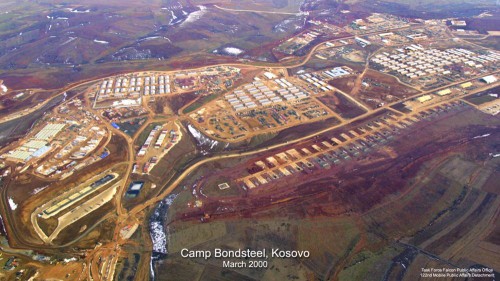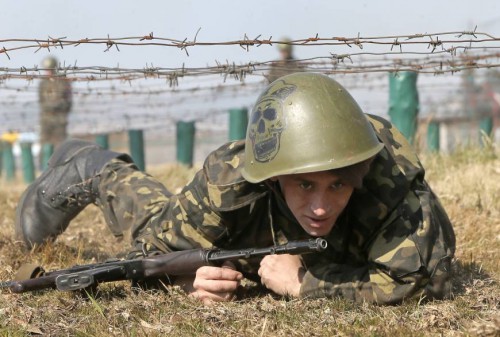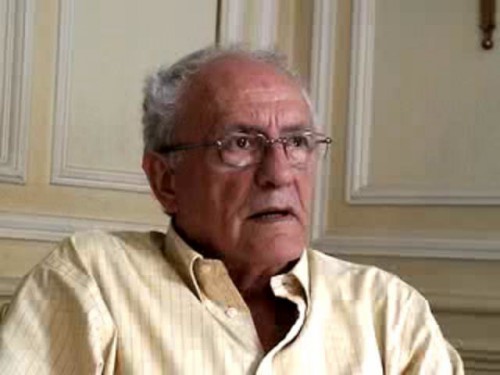
L'historien israélien voit en Marine Le Pen et le FN les enfants du fascisme.
Pierre-André Taguieff lui répond vertement et réfute toute reductio ad Hitlerum.
Ex: http://www.lepoint.fr
Dans ces brèves réactions critiques aux propos de Zeev Sternhell portant notamment sur sa conception du fascisme et plus largement du mouvement des idées politiques depuis la fin du XVIIIe siècle, tels qu'on les rencontre dans son livre d'entretiens récemment paru, Histoire et Lumières. Changer le monde par la raison (Paris, Albin Michel), ainsi que dans plusieurs interviews (parues dans L'Humanité, Le Nouvel Observateur, Le Monde, Le Point, etc.), je m'en tiendrai à certains points de désaccord fondamentaux, osant à l'occasion quelques pointes ironiques. Je dois préciser d'entrée de jeu que je partage certaines analyses de l'historien des idées politiques, et que j'ai reconnu, dans certains de mes livres (Les Contre-Réactionnaires, en 2007, ou Du diable en politique, en 2014), le grand ébranlement des idées reçues sur "le fascisme" que les travaux de l'historien israélien ont provoqué en mettant en évidence, après George L. Mosse et A. James Gregor, la dimension culturelle et l'orientation révolutionnaire du fascisme. Mais je considère globalement comme une impasse sa manière de faire de l'histoire, sur la base de tris sélectifs dans des textes trop vite lus, ou interprétés d'une façon douteuse (prendre l'emploi du mot "race" comme indicateur de "racisme", sans tenir compte du contexte), et de quelques dogmes empruntés aux idéologies politiques "progressistes" appréciées par le citoyen engagé Sternhell, intellectuel de gauche israélien de culture française.
Je considère également comme une somme d'erreurs d'analyse le modèle sternhellien du "fascisme", fondé sur la thèse selon laquelle le "fascisme" serait né en France avant 1914, le "fascisme français" dérivant dès lors d'un proto-fascisme ou pré-fascisme qui se serait constitué entre le milieu des années 1880 et la veille de la Première Guerre mondiale. Comme l'a bien vu Jacques Julliard, il s'agissait là d'une construction douteuse, de l'invention d'un "fascisme imaginaire". Cette somme d'erreurs non reconnues par Sternhell, en dépit des arguments avancés par de très nombreux historiens, s'est transformée chez lui en une sorte d'illusion intellectuelle motrice, dotée d'une valeur existentielle. Critiquer les thèses dogmatiques de Sternhell devient dès lors un crime de lèse-majesté, dénoncé avec indignation, véhémence et virulence par l'historien convaincu qu'un complot franco-français, dont le siège serait l'Institut d'études politiques de Paris, a été organisé contre lui depuis le début des années 1980. Voilà qui ne favorise pas la discussion sereine sur le mode d'un échange d'arguments rationnels.
L'incarnation du Mal en politique
Je ne cacherai pas le double sentiment de surprise et de déception qui m'a saisi d'une façon croissante à la lecture des ouvrages publiés par Sternhell à partir de 1983, date de parution de Ni droite ni gauche. L'idéologie fasciste en France. Car j'étais alors le lecteur admiratif, bien que déjà sceptique sur la vision attrape-tout du "fascisme" qui s'en dégageait, des deux premiers ouvrages de l'historien, Maurice Barrès et le nationalisme français (1972) et La Droite révolutionnaire 1885-1914. Les origines françaises du fascisme (1978). Il est surprenant en effet de voir un universitaire comme Sternhell substituer au regard critique et exigeant qu'on attend d'un historien le regard d'un militant de gauche qui, nourri de stéréotypes et de clichés hérités de la vulgate progressiste, dénonce avec indignation ce qu'il pense être l'incarnation du Mal en politique. Celui qui se donne pour un historien des idées politiques exprime sur un ton dogmatique une vision simpliste et manichéenne de l'histoire depuis le XVIIIe siècle, fondée sur l'opposition entre les bonnes Lumières et le mauvais nationalisme dérivé des "Anti-Lumières" (où un Herder en morceaux polémiquement choisis joue le rôle de l'inspirateur diabolique), opposition qu'il érige en clé de l'histoire moderne et contemporaine, oubliant au passage les origines jacobines (donc "illuministes") dudit nationalisme. En diabolisant la nation, en fantasmant le sentiment national comme intrinsèquement xénophobe, il en arrive à paraître confondre nationalisme et racisme, qu'il réduit sommairement à un "déterminisme biologique". Mais cela ne l'empêche pas de reconnaître que "le fascisme n'inclut pas nécessairement le déterminisme biologique", contrairement au nazisme, et de poser que "le fascisme est avant tout un nationalisme". Et de rappeler que, pour lui, "le fascisme se cristallise comme une synthèse de nationalisme intégral, de nationalisme organique qui, en lui-même, constitue un rejet des Lumières franco-kantiennes et une [sic : de la] révision antirationaliste, "antimatérialiste" du marxisme". On en infère que le bon marxisme est pour l'historien engagé un marxisme non "révisé", résolument "matérialiste" et "rationaliste", disons plus exactement scientiste. Autant dire le bon vieux marxisme soviétique. Mais il est vrai que Sternhell est un spécialiste du fascisme français, non du marxisme, encore moins du marxisme soviétique. S'il parle volontiers d'un peu de tout, on ne saurait lui faire grief de n'être pas un spécialiste de tout.
Une quatrième droite ?
Sternhell croit voir dans ce qu'il appelle la "droite révolutionnaire", née selon lui en France entre les années 1880 et la veille de la Première Guerre mondiale, à la fois une nouvelle synthèse idéologico-politique illustrant la tradition des "Anti-Lumières" et les origines intellectuelles du "fascisme". Le choix de la dénomination "droite révolutionnaire" est dicté par la volonté de l'historien d'ajouter une quatrième droite à la typologie trinitaire de René Rémond (légitimistes, orléanistes, bonapartistes). Il aurait pu aussi bien opter pour la dénomination "nationalisme révolutionnaire", ou pour celle de "nationalisme populiste" (ou encore celle de "national-populisme"). Mais il voulait à tout prix inscrire le pré-fascisme français qu'il croyait avoir identifié dans l'espace des droites, souligner l'appartenance à l'espace droitier de la supposée configuration pré-fasciste. Pour l'homme de gauche qu'il est avant tout, l'expression du Mal politique devait être située à droite. Sa définition du "fascisme", héritier supposé de la "droite révolutionnaire", est d'une surprenante plasticité : elle oscille entre le mariage du nationalisme xénophobe et du socialisme et le "ni droite ni gauche", ou plus précisément le double rejet du libéralisme (de la démocratie libérale/pluraliste) et du marxisme (non révisé). Le nationalisme de la terre et des morts, amalgamé avec celui du sol et du sang, serait donc, surgissant à la fin du XIXe siècle, le principal héritage politique des Anti-Lumières. Il s'opposerait autant à l'individualisme libéral qu'au rationalisme, aux droits de l'homme qu'à la Révolution française et à son héritage, et bien sûr à la croyance au progrès dans l'Histoire. Sans oublier "la démocratie", invoquée sans la moindre analyse de ses multiples interprétations contradictoires.
Sternhell est donc mû par la foi naïve des adeptes du "progressisme" standard, pour lesquels la "droite" incarne le Mal et la gauche le Bien. Au nom de ce qu'il appelle "les valeurs des Lumières" ou "les valeurs humanistes", il appelle la gauche à rester fidèle au "véritable héritage des Lumières", qu'il définit comme suit, le 12 août 2013, dans le journal communiste L'Humanité : "Les hommes, êtres rationnels et autonomes, sont capables de se construire un monde meilleur." Il redécouvre ainsi, avec la touchante naïveté de l'intellectuel engagé, le message ressassé par les néo-communistes des années 1990 (le slogan "Un autre monde est possible") : après avoir fait entrer de force la justice parmi les "valeurs des Lumières", oubliant donc les prophètes juifs, précurseurs brouillons des modernes et lumineux Diderot, Rousseau et Voltaire, il affirme doctement que "la justice signifie que l'on refuse l'idée que le monde tel qu'il est soit le seul possible". Il réécrit sans le savoir, croyant faire oeuvre scientifique, une histoire de France en noir et blanc, selon le Bien et le Mal, illustrant le point de vue moral et l'indignation rétrospective jusqu'à la caricature.
Sternhell, plus militant qu'historien
L'historien est assurément un moraliste, mais un piètre moraliste, comme l'est tout militant à oeillères se réclamant avec arrogance du "Progrès" ou de la "Raison", installé confortablement dans le Bien et jetant l'anathème sur les figures de son ennemi plus ou moins imaginaire, qu'il criminalise, bestialise ou diabolise. L'historien partisan et combattant défend un universalisme abstrait dont il ne voit pas l'envers, à savoir le projet de créer l'homme nouveau, le citoyen "régénéré", ainsi que les prétentions messianiques et l'impérialisme guerrier qui en dérive. On connaît pourtant les ravages causés par les projets modernes de rééduquer les humains réels, différents et inégaux, pour les conformer à un modèle normatif de l'humanité faisant prévaloir l'unité et l'égalité. D'où l'idéal de la table rase, dont le citoyen "pur", sans qualités, est le produit rêvé : il s'agit d'en finir avec un passé dépassé, avec les attributs archaïques de l'humain d'avant les Lumières que sont (je cite) "l'histoire, la culture, la langue ou la religion". Mais, dès lors, s'il faut faire abstraction de toutes ces caractéristiques des humains concrets, on ne comprend pas l'engagement de l'individu Sternhell en faveur du sionisme, c'est-à-dire du nationalisme juif. Si l'on ne doit voir que de l'humain en général en tout homme, s'il faut "faire table rase" de tous les héritages et de toutes les appartenances, la figure du Juif doit être chassée comme une survivance, un archaïsme dangereux. Ce qui distingue les humains et fonde les différences intergroupales est ainsi dénoncé comme ce qui "sépare", qui serait l'expression du Mal. Retour du diable : le mot diábolos (en grec) ou diabolus (en latin) ne signifie-t-il pas "celui qui divise" ? Libérer le Juif, c'est le libérer de sa particularité, c'est-à-dire de sa judéité. Donc, refuser à tout prix le sionisme, qui présuppose la judéité de ceux qui s'y engagent.
Comment Sternhell peut-il se dire (encore) "sioniste" ? Ce "sioniste de toujours", car telle est l'image qu'il veut donner de lui-même, ne cache pas cependant qu'il est un déçu du sionisme. Et ce, jusqu'à laisser entendre qu'il désespère d'Israël, où les droites triomphent. Dans un article paru le 1er avril 2011 dans le quotidien gauchiste Haaretz, "L'Anachronisme d'Israël", Sternhell prend le visage d'un prophète progressiste condamnant son pays sur le même ton que les pires ennemis d'Israël, et va jusqu'à justifier les campagnes en faveur de la délégitimation de l'État juif, qu'il dénonce comme une détestable résurgence d'un passé dépassé : "Lentement, mais sûrement, Israël est en passe d'acquérir un statut d'anachronisme. [...] Alors que les pays occidentaux se sont libérés de leur domination sur d'autres peuples, Israël, lui, prend forme quasi coloniale [...] Existe-t-il ailleurs en Occident un tel anachronisme ? Le colonialisme implantatoire est aujourd'hui la raison principale, et souvent même la seule, de l'opposition frisant parfois l'hostilité [sic] que suscite Israël dans de larges cercles de l'intelligentsia occidentale. Ce ne sont pas les ennemis du sionisme ou les antisémites qui provoquent la délégitimation d'Israël. C'est de ses propres mains, Israël lui-même."
"Israël est aujourd'hui à l'extrême droite du spectre politique"
Dans Histoire et Lumières, le militant Sternhell va plus loin, en énonçant froidement : "Ce qui se profile à l'horizon est désormais un État d'apartheid contre lequel il faudra lutter." L'image de l'apartheid empruntée à la propagande palestinienne semble l'empêcher de voir la réalité de la menace islamiste croissante, au Proche-Orient comme ailleurs. Dans Haaretz, le 1er novembre 2013, il ne rejette pas la thèse d'extrême gauche, largement diffusée par les milieux islamistes et pro-palestiniens, selon laquelle l'islamophobie serait en train de prendre aujourd'hui "la place de l'antisémitisme en tant que maladie du corps social". Dans le même article, il n'hésite pas à affirmer, à propos de Marine Le Pen, que, "comparée à la plupart des membres du gouvernement et de la Knesset, cette dernière ressemble à une dangereuse gauchiste". Bref, "Israël est aujourd'hui à l'extrême droite du spectre politique", et, pour lui, cela signifie que la politique d'Israël est raciste et xénophobe. Sternhell donne ainsi sa caution au thème majeur de l'actuelle propagande "antisioniste" : l'accusation de "racisme" et d'"apartheid" visant l'État d'Israël. Un tel aveuglement idéologique est inquiétant, en même temps qu'il témoigne du ralliement de certains intellectuels israéliens à la vulgate "antisioniste". C'est, pour ces intellectuels citoyens d'un État hautement diabolisé, la condition à remplir pour bénéficier d'une large audience à l'étranger. Qu'il s'agisse de Shlomo Sand, d'Ilan Pappé, de Michel Warschawski ou de Zeev Sternhell, la dénonciation publique d'Israël représente pour eux une garantie de bonne réception médiatique dans les démocraties occidentales, où la diabolisation d'Israël s'est banalisée dans les milieux politique et culturel. La figure d'un sioniste profondément déçu comme Sternhell a vraisemblablement plus d'attraits pour le public israélophobe occidental que celle d'un antisioniste déclaré. Et son statut d'historien israélien du fascisme devenu célèbre par la contestation même de ses thèses lui confère une crédibilité incomparablement plus grande que celle qu'on accorde à un universitaire français ou belge engagé dans la propagande anti-israélienne.
Étrangement, tout à sa célébration des "principes des Lumières", Sternhell fait l'impasse sur la judéophobie des Lumières, comme s'il n'avait pas sérieusement lu Voltaire et d'Holbach, ni leurs continuateurs au XIXe siècle. D'où la sentence qui peut être retournée comme un gant : "Quand on s'attaque aux principes des Lumières, l'antisémitisme n'est jamais loin." On pourrait tout autant affirmer que lorsqu'on se prosterne trop devant les Lumières et l'universalisme abstrait qu'elles imposent, l'antisémitisme n'est pas loin. On connaît la thèse centrale de l'antisémitisme "de Voltaire à Wagner" (comme disait Léon Poliakov), en passant par le jeune Marx : "le Juif" doit dépouiller sa particularité pour devenir un homme universel, pour rejoindre enfin le genre humain. S'il veut être pleinement homme, il doit cesser d'être juif. Mais Sternhell, en polémiste, recourt à la méthode de diabolisation : il tend à réduire tous les ennemis désignés à un ennemi unique, qui serait à la fois nationaliste, xénophobe, raciste et antisémite, et indistinctement anti-Lumières, anti-rationaliste, anti-progressiste (ou réactionnaire), antidémocrate, antimarxiste et antilibéral. C'est pourquoi il dédouane Voltaire, en réduisant sa haine des Juifs, comme peuple et comme communauté de croyants, à un simple aspect de l'"horreur" qu'il éprouvait pour "la religion tout court". En matière de judéophobie, il accable Herder et excuse Voltaire, pour sauver sa vision manichéenne des deux traditions qu'il distingue sans esprit de finesse, sans nuances, les Lumières et les Anti-Lumières, sans apercevoir les chevauchements entre les pensées des auteurs qu'il épingle, se contentant d'opposer les bons aux mauvais. Comme si l'important était de préserver le dogme fondamental de son catéchisme "progressiste". Insensible aux nuances, l'historien se montre aussi imperméable aux ambiguïtés.
À la fin de son livre d'entretiens, Histoire et Lumières, où, avec une naïveté confondante, il fait l'éloge du progrès et du "marxisme humaniste", Sternhell nous offre un morceau d'anthologie, quelque chose comme une réminiscence de la pensée-Garaudy des années 1970, avant la conversion du célèbre stalinien de dialogue à l'islam et à l'antisionisme radical. Il s'agit cependant d'un garaudysme simplifié, comme on peut en juger : "La critique du progrès est une impasse, car les gens ont besoin d'une vie meilleure. Une société meilleure, plus juste, voilà ce qu'est le progrès. Dans ce sens, je dois préciser que le marxisme tel que je l'entends, un marxisme qui fournirait une méthode à un socialisme capable de se mesurer aux dures réalités de notre temps, demeure un espoir, alors qu'il n'y a pas d'espoir dans le nationalisme. Le marxisme humaniste, dont le socialisme français portait les traits caractéristiques pendant longtemps, n'est pas mort. [...] La seule armature conceptuelle qui permette d'envisager un monde plus juste et plus humain reste le socialisme enraciné dans un marxisme modernisé, parce que seul le marxisme remet en cause le capitalisme."
Il déplore le "recul" des "idées" de gauche et d'extrême gauche
Bref, à ses yeux, le marxisme reste une "boussole", permettant aux hommes de "construire leur avenir", qui doit bien sûr être "meilleur". C'est ce que l'intellectuel engagé appelle le "progrès". La vulgate progressiste teintée de marxisme définit le "socialisme" ou la "gauche" dont Sternhell se montre un fervent défenseur. Comme les nostalgiques contemporains du communisme (Alain Badiou, Slavoj Zizek et quelques autres), Sternhell veut à tout prix préserver l'"idée", l'"idéal ou l'"hypothèse" communiste, lui conserver le statut symbolique privilégié d'un possible recours après l'échec, qu'il espère, du "libéralisme" ou du "capitalisme". Il s'efforce ainsi de ressusciter la thèse sartrienne, devenue slogan, du marxisme comme "horizon indépassable de notre temps". Ce faisant, il aménage et "humanise" le bon vieux marxisme orthodoxe, celui de l'époque stalinienne, dont il ne connaît guère que les versions françaises, qu'il semble considérer comme les indépassables "Lumières marxo-françaises", pour paraphraser une expression qu'il affectionne.
Le militant marxo-progressiste n'en aime pas moins flirter avec la philosophie, qui se réduit pour lui à une énumération de mots magiques en "isme" et de gros concepts qui sonnent creux, comme lorsqu'il déplore le "recul" des "idées" de gauche et d'extrême gauche : "Il y a un recul des idées fondamentales des Lumières franco-kantiennes, de l'universalisme, de l'individualisme, de l'idée de progrès, de la croyance que les hommes sont les mêmes d'un bout à l'autre du monde." Pour dénoncer ce déclin intellectuel, Sternhell n'évite pas d'employer la métaphore usée de "crispation", visant particulièrement la France : "Nous vivons un moment de crispation qui atteint le rationalisme. [...] La gauche n'ose pas se lever contre cette idée fausse entre toutes selon laquelle le capitalisme et l'économie de marché portent la liberté." Il faudrait donc inciter nos contemporains à sortir de ce triste état de "crispation", délivrer le rationalisme (lequel ?) de son emprise, et voir dans le marché la route vers la servitude. Autre signe du déclin impliqué par le recul des "idées" situées du bon côté : "L'idée que la France est et doit rester chrétienne est plus répandue que ce que l'on pense." On en frémit.
Sternhell ne peut se passer d'ennemis
Lorsqu'il traite du FN, Sternhell projette ses schémas interprétatifs rigides sur des phénomènes qu'il connaît insuffisamment, n'ayant jamais étudié spécifiquement les mouvements nationalistes français de l'après-1945. Il se contente d'émettre son diagnostic attendu : "fascisme". C'est l'un des principaux noms de son ennemi principal, dont la France serait, selon lui, le berceau, notamment avec le culte barrésien de la Terre et des Morts, et ce qu'il pense être une vision organique de la nation, qu'il conçoit d'une façon confuse comme une "unité homogène" (un "corps" n'est pourtant pas "homogène"), dotée d'une "âme" (l'expression "l'âme de la France" devient donc suspecte, "pré-fasciste"). Cette insistance sur le déterminisme biologique lui fait négliger la principale source intellectuelle du fascisme historique (mussolinien) et du nazisme : la conception social-darwiniste de la lutte pour la vie, impliquant une redéfinition du "progrès" comme effet de la concurrence inter-individuelle et inter-groupale. En outre, sa thèse sur le "pré-fascisme" français le conduit à une vision anhistorique du fascisme, à une méconnaissance du rôle moteur joué par la Première Guerre mondiale, école de violence technicisée, dont les vertus "héroïques" constituent la transfiguration fascistoïde. Le fascisme comme le national-socialisme sont inexplicables sans la prise en compte de l'expérience, durant les années de guerre, de l'égalité et de la solidarité des combattants, de ce "socialisme" de guerre qui fait naître le désintéressement et l'esprit de sacrifice, en même temps qu'il inculque le respect de l'autorité et le sens de la discipline. Tel fut le véritable "berceau" de l'esprit fasciste. On est en droit de s'étonner du fait qu'un militant sioniste (donc nationaliste) comme Sternhell, qui s'est engagé dans l'armée israélienne et a participé à plusieurs affrontements armés en reconnaissant que la vie militaire lui plaisait "beaucoup" ("Mes supérieurs directs m'ont dit que j'étais fait pour elle, que j'aimais ça, et que cela se voyait"), n'ait tiré aucune leçon de cette expérience militaire personnelle dans ses travaux d'historien. On peut faire l'hypothèse qu'entre cette expérience du combat qu'il présente positivement et l'engagement pacifiste affiché du cofondateur du mouvement La Paix maintenant, la contradiction était telle qu'il ne pouvait échapper à une situation de dissonance cognitive.
Comme les nationalistes, selon lui, Sternhell ne peut se passer d'ennemis, et il en voit beaucoup et partout. Posant avec autorité que le FN est la nouvelle figure française du "fascisme", il est assuré d'être applaudi par l'ensemble des médias de gauche et par la plupart des acteurs de la gauche plurielle. Au cours de sa tournée en France, l'historien engagé dénonce à son tour comme "fasciste" le parti nationaliste qu'une propagande néo-antifasciste aveugle a contribué à placer au centre de l'espace politique français. Il donne sa caution au présupposé de la stratégie anti-FN qui a constitué l'opium du peuple de gauche depuis une trentaine d'années. Intervenant ici en militant plutôt qu'en historien scrupuleux, il ne se soucie pas de faire les distinctions fines et les analyses nuancées qui s'imposent à propos d'un parti qui n'a cessé de se métamorphoser depuis sa création en octobre 1972. Mais surtout, rien ne permet d'affirmer que le FN se situe dans la filiation de la "droite révolutionnaire", comme configuration "pré-fasciste". Sternhell réitère ainsi sa lourde erreur d'interprétation des Croix-de-Feu et du Parti social français (PSF) qui leur ont succédé, mouvement conservateur, anti-parlementaire et autoritaire, donc bonapartiste, qu'il a hâtivement catégorisé comme "fasciste". En quoi le mouvement du colonel de La Rocque était-il "révolutionnaire" ? La même question se pose pour le FN.
L'hostilité au FN ne devrait pas conduire à le méconnaître
Sternhell reconnaît des changements dans l'évolution du FN, mais nie cependant que celui-ci ait changé. Et de reprendre à son compte le dogme néo-antifasciste fondamental, celui du non-changement du parti lepéniste : "Le FN n'a pas changé (de nature)", lequel peut s'énoncer sous la forme d'un dicton adapté au contexte : "Tel père, telle fille" (on n'échappe pas à la filiation ou à l'hérédité familiale). Pour mobiliser les militants, sans se soucier de la vérité, le discours de propagande est voué à répéter paresseusement que "rien ne change" du côté de la "bête immonde". Bref, le diable reste le diable, et il doit le rester, surtout quand il veut faire croire qu'il n'existe pas. Manuel Valls déclarait le 21 mai 2014 : "Le FN, avec Marine Le Pen, n'a pas changé." Mais la réitération d'un dogme n'est pas une démonstration. Et le champ d'exercice de l'efficacité symbolique du cliché ne dépasse pas le cercle des convaincus, qui ne cesse lui-même de se réduire.
L'hostilité au FN ne devrait pas conduire à le méconnaître ni à le réduire à du supposé "bien connu". Le dire une fois de plus "fasciste" ne fait pas avancer la connaissance. Ni reculer le phénomène ainsi baptisé. Seuls les derniers héritiers de la propagande communiste continuent de diaboliser le FN en le dénonçant comme "fasciste". La reductio ad Hitlerum a fait son temps. L'antifascisme incantatoire ne fonctionne plus. Le dynamisme du FN en témoigne. Il faut repartir de la réalité sociopolitique, analyser sans oeillères le FN dans ses évolutions récentes, le comparer avec d'autres partis-mouvements en Europe, dire clairement et précisément en quoi son projet politique est inacceptable, et inventer des stratégies de lutte, intellectuelles et politiques, contre cette formation nationale-populiste qui a su adapter son offre politique aux attentes ou aux demandes de son électorat potentiel. Face au FN, il s'agit d'imaginer, et non plus de commémorer et de ressasser platement, indéfiniment.



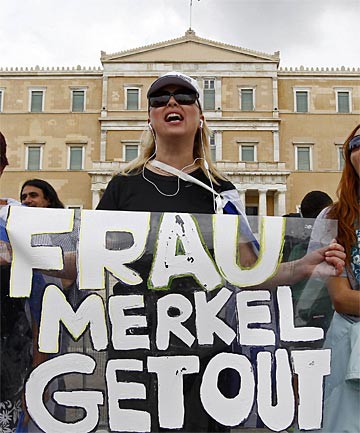

 del.icio.us
del.icio.us
 Digg
Digg